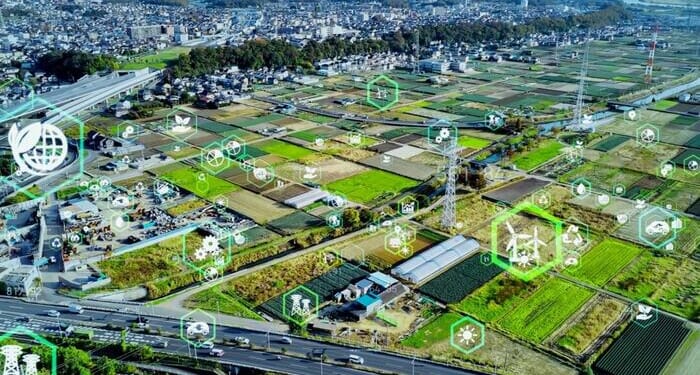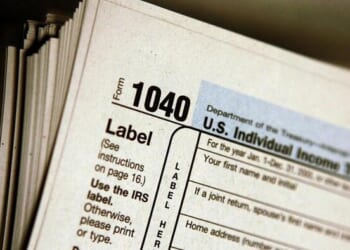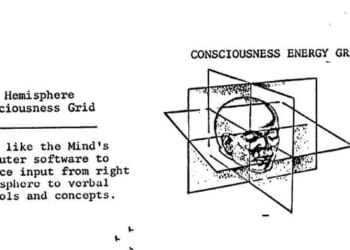Authored by Jeffrey A. Tucker via The Epoch Times (emphasis ours),
In 1935, the mainline publisher Macmillan printed a book called “Planned Society” edited by American economist and journalist George Soule. The core idea was that mass unemployment, the economic depression, financial instability, and material deprivation all have a solution. We need the best and the brightest to come to power with a new plan for the whole of society.
What followed were many chapters exploring the idea. With the right plan, government can produce and deliver food. It can build all the houses and apartments. It can be the main influence in capital markets and hence fix business cycles. It can set prices and guarantee they are the right ones. It can provide minimum living standards for everyone, plus provide education and health care.
The ethos of the book was not about replicating the Soviet experience, which was already discredited by that time. Sloganeering about revolutionary workers and expropriating the expropriators was not in fashion. Indeed, powerful intellectuals and industries truly feared such attitudes. The planned society of the sort mapped out in this book was to be the alternative.
The underlying presumption of the book—one shared by nearly all public intellectuals at the time—was that both freedom and democracy have failed. They have led to the chaos of economic collapse and social division. These old-fashioned ideas—rooted in simply allowing society to evolve on its own—were deeply unscientific. They needed to be replaced by new ideas from the Ivy League.
The moniker “planned society” also served as a replacement for socialism as a political agenda. Why did socialism have to be replaced? First, it was a political loser thanks to the disasters unfolding in the Soviet Union. Second, all classes of people in the U.S. and the UK like their property rights, religion, and families, and had no interest in a scheme to jettison them. Third, no one at that point in time had a solution to the fundamental economic failing of socialism.
To understand that latter point, let’s go back more than a decade earlier to 1920. Economist Ludwig von Mises had written an article called “Economic Calculation in the Socialist Commonwealth.” He offered a novel counterpoint to socialist theory. It had normally been assumed that socialism failed because people are not angels and therefore cannot be expected to work for the good of all.
Mises said something different. He was glad to imagine a world of people who are community-minded, unselfish, and need no monetary incentives to work and do a good job. They are happy to produce, share, and commit themselves to the well-being of all. Let’s say that all men are angels. Even then, he said, socialism will necessarily fail for a precise technological reason.
Socialism imagines getting rid of the private ownership of capital, which are the produced means of production. We are talking about steel, wood, all tools, trucks, and anything else that is neither natural resources nor consumer good. Those would all be owned collectively. In this way, socialism said, it could stop value from unfairly flowing from workers to owners. This addresses the core argument of Karl Marx in his book “Capital” and a constant complaint of socialists from time immemorial.
With collective ownership of capital goods, the market for them would disappear. Along with that there would be no trading of capital and no prices for them. Without such prices, accounting for profits and losses from capital would also vanish. We are left with just huge piles of stuff that have to be allocated through some means other than normal accounting. That means that the planners would have to be in charge.
What signals would the planners have? Prices have been taken away. They would have no access to information systems about the needs of society. They would not know whether scarce amounts of steel should flow to trains, trucks, bridges, buildings, repairs of old things, or building of the new. They would not know whether cotton and wool need to go to blankets, clothing, beddings, or uniforms. They would have no idea what the trade-offs were of these decisions and no means by which to assess whether they had made the right decision.
And then you have the problem of change. In the real world, everything is always changing: consumer tastes, technology, seasonal needs, demographics, and talents. A socialist society managed by elites would lack any signaling system to adapt to such changes. Society would get stuck in place and economic life would stagnate. This is the best possible outcome. The worst outcome is sheer chaos.
“Without economic calculation there can be no economy,” Mises wrote. “Hence, in a socialist state wherein the pursuit of economic calculation is impossible, there can be—in our sense of the term—no economy whatsoever.”
What would replace the economy?
“There will be hundreds and thousands of factories in operation. Very few of these will be producing wares ready for use; in the majority of cases what will be manufactured will be unfinished goods and production goods. All these concerns will be interrelated. Every good will go through a whole series of stages before it is ready for use. In the ceaseless toil and moil of this process, however, the administration will be without any means of testing their bearings. It will never be able to determine whether a given good has not been kept for a superfluous length of time in the necessary processes of production, or whether work and material have not been wasted in its completion.”
Finally: “Thus in the socialist commonwealth every economic change becomes an undertaking whose success can be neither appraised in advance nor later retrospectively determined. There is only groping in the dark. Socialism is the abolition of rational economy.”
The argument was devastating to European intellectuals. Mises’s point was born out in Soviet experience. No one could really come up with an answer to it until the Polish economist Oskar Lange in the mid-1930s took it on. He said that the planners would not need real markets insofar as they could simulate markets with auctions. The state could hire financial traders to bid and ask, thus yielding prices that the planners could take in as information to feed their plans.
That argument was further met by F.A. Hayek who broadened Mises’s point into a general theory of knowledge in society. All social systems need information for coordination and planning but from where is that information drawn? He said that the only reliable information is connected to time, place, and real human experience. Even then, all economic decision-making is a speculation about human needs and future uncertainties. The data we need is necessary to localize and disperse, and even and often embed tacitly in habits, mores, and traditions.
The planners, he said, will always be ignorant relative to the intelligence of the societies over which they preside.
By the 1950s, the planners developed a new scheme that seemed to refute all the past critics of socialism and offer a new way toward organizing a rational society. They claimed that the advent of the computer age had made socialist planning entirely possible. “Let us put the simultaneous equations on an electronic computer and we shall obtain the solution in less than a second,” wrote Lange. “The market process with its cumbersome atonements appears old-fashioned. Indeed, it may be considered as a computing device of the pre-electronic age.”
Of course that scheme did not work. The knowledge problem, clarified Hayek, was not merely a technical issue that can be solved with more computing power. It was a learning and discovery problem that requires freedom of action, choice, and trading to generate useful information that adapts to change.
You see where this is going now. Myriad thinkers have once again rallied around a technological solution to the socialist problem of rational economic calculation and wise use of resources.
Jack Ma, founder of Alibaba, has written: “In the era of big data, the abilities of human beings in obtaining and processing data are greater than you can imagine. With the help of artificial intelligence or multiple intelligence, our perception of the world will be elevated to a new level. As such, big data will make the market smarter and make it possible to plan and predict market forces so as to allow us to finally achieve a planned economy.”
This is the same hubris that led Vladimir Lenin to believe that solving the economic problem under communism was easy as pie, until he discovered two years after taking power that even the pies disappeared.
It will be the same with the people who think AI will make the dream come true. You already know this. Even the best data is past data. It does not provide a crystal ball to the future. It is also deeply mistake prone. As with all planned systems, it provides no mechanisms for adaptation to reality even when that reality is screaming for change.
Isn’t it remarkable? For some reason, intellectuals are forever reluctant to admit that they are in no position to plan society under any ideological flag, and that freedom alone is capable of generating the best possible social and economic outcomes. The old solutions of individual rights and freedom—the rallying points of America’s Founding Fathers—have not only stood the test of time but still offer the best model for the future.
Loading recommendations…


















